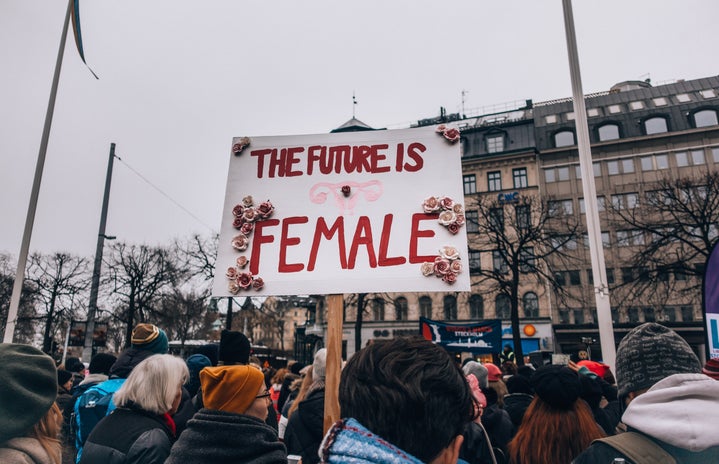Former Secretary of State Hillary Clinton needs no introduction. The senator-turned-2016 Democratic presidential nominee has been in the national spotlight since her days as the first lady to President Bill Clinton in the early 90s. Secretary Clinton first ran for office as a New York senator in 2000 and held that office until 2009, after losing her first presidential primary run to Obama in 2008. Clinton accepted the position of secretary of state under his administration and served until 2013. Secretary Clinton won the Democratic presidential nomination in 2016, losing a contentious and scandal-ridden election to Donald Trump.
Though she has earned one of the most impressive resumes in politics, Secretary Clinton’s career has been riddled with failure, not unlike many of her political peers. She reflected that her favorite of these was her 2008 primary loss to Obama,
“I came so close, got more votes but fewer delegates, and supported then-Senator Obama and worked really hard for him and, to my surprise, he asked me to be Secretary of State. So I guess, you know, it comes full circle.”
After turning her primary loss into a major career win, Secretary Clinton became one of the most relevant women in politics. While she does not stand alone, there are few women who have been able to reach her political stature in the United States. Despite being a world leader in many respects, the U.S. falls short on gender parity. Studies have shown that women win elections at the same rates as men. The discrepancy comes in their willingness to run for office.
The number one reason for this disparity is that many women feel unqualified to hold office, despite this being untrue in many circumstances. Secretary Clinton reinforced the findings of this research,
“It certainly has been my experience that it’s true that women who are, in my opinion, are eminently qualified and don’t believe they are. A lot of men who maybe are less qualified certainly believe they are qualified, so it’s played out in real life over a lot of my years watching and being involved in politics.” Played out it has, certainly in 2016 with the election of businessman Donald Trump.
In terms of feeling qualified herself, Clinton remembers she “did worry, not about [her] qualifications to do the job, but [her] experience and readiness to get out into the political arena.” she recalls, “ [she] really had to learn a lot, it was a constant challenge.”
In her decision to run for Senate in 2001, Secretary Clinton recalls being skeptical “until a young woman basically told [her] to ‘dare to compete,’ and it was kind of ironic since [she] had told a lot of other women to do just that.”
This first campaign was tough as she leaped into the political scene as a candidate for the first time. Clinton notes,
“[She] was really happy being an advocate and a citizen activist because [she] values those roles and they felt very comfortable to [her], so [she] had to get out there and kinda learn under the spotlight while walking a tightrope so that [she] could actually do the political piece of it.”
The tightrope Clinton references is a common metaphor for women in politics. Media coverage of female politicians is often criticized for its ferocity. Clinton wrote in her memoir of the 2016 election, What Happened, about her decision to have full professional makeup done every morning on the campaign trail. She expressed her complete lack of interest in all things cosmetic,
“I never ever really paid much attention to it at all, it wasn’t something that I was either concerned about or, frankly, very good at.”
During the beginning of her campaign, Clinton was approached by friends (most notably, Anna Wintour) who told her,
“You either need to learn how to do this better yourself or you need to get somebody to do it.” Clinton laughed, “Which, you know, is very fair and good advice.”
Once, while on State Department business in India, Secretary Clinton’s eye became irritated by a product a new makeup artist used on her face. She could not put in her contacts and ended up wearing her eyeglasses to a press event. The backlash was unprecedented. She was criticized for looking “burnt out” and like a “sassy geek.” She recalls,
“You would’ve thought I’d declared war on China!” She laughed, “you just don’t want it to be a distraction, so you just kind of get into a groove where you try to look the same or close to the same every day.”
This standard is untrue for men in the political arena, an imbalance that is not inconsequential. Clinton calculated that she spent 25 days in total in hair and makeup on the campaign trail.
She joked, “I mean, every man I know, they get ready in less than 20 minutes. They take a shower, brush their teeth, run a comb through their hair, whatever, and they’re out the door, dressed to go!”
Clinton used her time being made up wisely, taking phone calls and reading briefs, but 25 days more or less wasted seems like an exorbitant cost to pay for respect from the press. What Happened discusses Clinton’s pantsuit collection as a means toward the same goal. She opted for a clean and consistent look to keep comments on her appearance to a minimum,
“I didn’t want to really draw attention to what I wore or how I looked, I wanted to communicate about whatever it is we were discussing.”
She touches on emotional labor in the chapter “On Being a Woman in Politics,” a responsibility that typically falls to women in personal relationships. On a wider political scale, Clinton recalls being approached by strangers while on the campaign trail and listening to their deepest concerns. She recalls that, though she never felt resentful of these peoples’ comfortability sharing their darkest moments with her, she did feel the emotional drain of constituent interactions.
She told Her Campus, “I don’t [begrudge them] because I feel like, you know, an opportunity for someone to share whatever it is that happened to them with the hope that not only will I hear them, but that maybe there is some way that I could help, if not them personally, then on the larger set of concerns that they express.”
As for the women following in her footsteps, Clinton has one piece of advice,
“Don’t be scared off, don’t underestimate yourself, don’t be worried about whether you can measure up because nobody knows until they get into the arena and they try, but be prepared. You do have to feel comfortable speaking in public, you do have to make sure you’re up on whatever it is you’re going to talk about, whatever issues you care about, whatever causes you’re passionate about, but that’s an intellectual exercise. Get yourself prepared, but don’t get scared off of trying it if it is what you think you’d like to do.”


